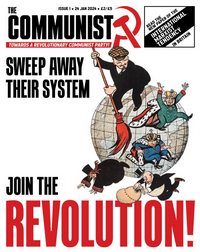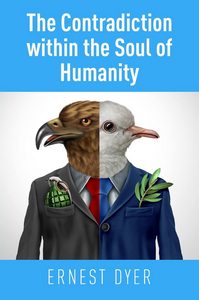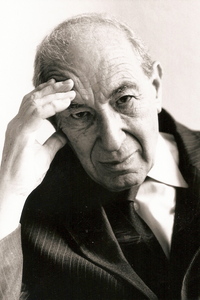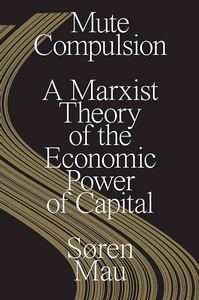Book reviews – Dyer, Headicar, Mau / The Communist review
The Contradiction Within the Soul of Humanity. By Ernest Dyer. New Generation Publishing. 2023. 83pp.
This book is, by the author’s own admission, his personal journey of escape from the conditioning which society, via conventional upbringing and education system, marks us all with. This journey, he tells us, was triggered by his questioning of why humanity has been plagued by the horrors of war and conflict throughout much of its known history. The book’s title, with its use of the word ‘soul’, may suggest some kind of religious inspiration, but, as he makes clear, even as a teenager he realised that religious explanations made no sense and that, as he puts it ‘God was a fictional construct’. So the underlying reasons for the competition and conflict which seemed fundamental to human society had to lie elsewhere. He proceeds here to identify ‘the evil in humankind’s history’ (his words) as developing from the beginnings of ‘civil life’, referring to the start of settled agriculture and the development of fixed communities around 10,000 years ago with their hierarchies and wealth inequalities.
This is very much in line with much modern thinking about the origins of inequality, inter-group conflict and the challenge to the pro-social behaviour among homo sapiens which had largely characterised its previous 2-300,000 years of existence. That challenge, he argues, has reached its peak in modern society, where the sources of ‘evil’ are not just war and economic inequality but also environmental degradation and the threats posed by artificial intelligence. He does not stint on detailing the horrors which war has brought, and still brings, to humanity and the overwhelming waste of resources occasioned by war and preparation for it. As he rightly points out, war in the modern world is overwhelmingly caused by ‘competition over valued resources such as: water, land, fossil fuels, rare and valued metals and materials’. This, he tells us, results in ‘a mismatch between what we can now do (technologically) and our seeming inability to manage the consequences’. He sees as the driver of all this the interests of what he variously calls the ‘elite class’, ‘elite groups’ and ‘national leaders’, with the vast majority of people being ‘impotent witnesses’. He recognises that these elites are the owners or controllers of the vast majority of society’s wealth, even if he does not explicitly identify them, as we would, as the capitalist class and their representatives.
What is the author’s remedy for this contradiction between human potential and the actual reality of human society? Since, together with war, competition and inequality, the other great ‘evil’ he sees in the world is the modern nation state (described as ‘the most powerful, and currently for the World the most dangerous, entity fostering the identification of differences between peoples’), he calls for ‘world consciousness’, considering that ‘no human is irredeemably beyond the potential for some precocious sense of world-consciousness’. An admirable sentiment definitely, but how is that world consciousness to be achieved? Via some kind of ‘global governance’ body, he suggests, perhaps based on the United Nations, where representatives from different nations will get together and agree on a way of organising the world and its resources so as to eliminate armed conflict and the threat of it. The problem of course is that the United Nations is already meant to do that in theory, but it doesn’t – and can’t –, because the foremost obstacle to it is the very existence of the ‘elites’ the author talks about in each individual country and their monopoly of the wealth that they possess and seek to retain or increase via the working of their national executive committees, ie, governments.
The author does, however, glimpse a solution that could work on a world-scale when he talks about ‘the actual engagement of mass populations as a necessary precondition’ to get rid of ‘hegemonic economic competition’ and achieve ‘co-operation and peaceful co-existence’. But that will involve something this book doesn’t mention, that is an understanding by those ‘mass populations’ of the way current society, capitalism, operates and the need to change that by mass political action, democratically and ideally via the ballot box, to create a moneyless, wageless, stateless society, a society of the ‘inter-group co-operation’ the book advocates. That will truly be ‘world consciousness’ and, no matter what the author of this book, which is well-meaning and for the most part entirely admirable, would like to happen, it cannot come through some kind of moral agreement by some global body within the current system.
HKM
Alfred Reynolds / Reinhold Alfred. By Richard Headicar. 2023. ISBN 978-1-3999-6772-3
Alfred Reynolds was a philosopher and poet from Hungary who fled to Britain in 1937 after being arrested for allegedly subversive political activities. A Social Democrat and former ‘Communist’ who was at one point accused of Trotskyism there, he was a radical who was a long-term critic of totalitarian political formations, both Fascist and Leninist.
Because of his linguistic abilities he worked as an interpreter for a time in Britain including for German prisoners of war at the Kempton Park prison camp, before creating a de-Nazification programme that he pioneered at Slemdal Prison Camp in Norway. He received recognition and support from the Labour MP Philip Noel-Baker and after a time with the International Refugee Council eventually became a middle-ranking UK civil servant in London, but it is not that for which he is perhaps most well-known.
After the war, Reynolds created a weekly discussion group that mirrored to some extent one that he had developed in Hungary and another, later, circle of Germans who had been influenced by his tutelage. It was called the ‘Bridge Circle’ and out of this emanated a monthly journal called the London Letter. This had a low circulation but an influence that was disproportionate to its size: over time Martin Buber, J.B. Priestley, TUC leader George Woodcock, Albert Schweitzer and Sir Herbert Read were all contributors. Jomo Kenyatta was another who orbited in this milieu, as was Colin Wilson who described Reynolds as ‘one of the most original minds of the modern world’.
Reynolds went on to found an English Language School in central London, but it is for the Bridge Circle and London Letter that he is probably best known. His philosophy counselled strongly against ‘group think’ and in favour of the search for ‘personal truth’ and arguably veered between liberalism and anarchism (with added influences from the saner writings of Nietzsche among others). In 1982 a number of Reynolds’s articles were published in a volume called Pilate’s Question. This title referred to the eternal conundrum of ‘what is truth?’, though Reynolds was a little frustrated that this was interpreted by some onlookers as being a possible religious tract when it was anything but.
Reynolds was for decades one of London’s characters and it was at Speakers’ Corner in Hyde Park that he met Richard Headicar in the 1950s, the author of this biography. Headicar was at the time an anti-nuclear speaker with anarchist leanings and who broadly supported CND. He became heavily influenced by Reynolds who converted from being his critic to mentor, and was a regular attender at the Bridge Circle (later carrying on a similar informal philosophy group in London, including after Reynolds’s death in 1993). Headicar writes:
‘Fittingly the last time I saw Alfred was at Speakers’ Corner. Coincidentally I was speaking for the SPGB of which he claimed he was once a member. I think he may have joined using another of his noms de plume. Spotting him in my crowd I was once more fleetingly visited by trepidation, wondering if he would be disappointed by my new affiliation. When I alighted from the platform he at once approached me, smiled, put his arm around my shoulder and said “Richard, that was pure Bridge”.’
The book is beautifully produced and includes many copies of letters, photos and other artefacts. It also details the more recent resurgence of interest in him in his home country of Hungary, including for his early work Alfred Reinhold’s First and Last Volume of Lyric Poetry. There is a useful chapter on Bridge philosophy too and its relationship with Marx, Nietzsche, the power of human consciousness, technology and creativity among other things. And while Reynolds was sceptical of the ‘group think’ of Marxism, he clearly recognised in the SPGB a more independent and critical spirit than is typical on the self-styled Left – as of course, did Richard Headicar himself, a Party member to this day.
DAP
Mute Compulsion: A Theory of the Economic Power of Capital. By Søren Mau. University of Southern Denmark. 2019
Mau was interviewed by Jacobin in February 2023. In it he confirms the summary of his argument in the introduction to the interview, headlined ‘Capitalism Makes Everyone Bend to Its Will, Rich and Poor Alike’:
‘In his new book Mute Compulsion, Søren Mau argues that to understand and end capitalism, we need to analyze how it not only subordinates the poor to the rich but in fact exerts economic power over everyone — including capitalists themselves’ (tinyurl.com/et7m8vp8).
Mau argues that what maintains capitalist rule is not just physical force (threatened or actual) and ideology (brainwashing) but also ‘economic power’. He sees this as an impersonal form of power, an expression of the logic of capital that every market agent (not just workers but capitalists too) in capitalism is subjected to through the impersonal operation of market forces.
This of course is something we have long said and is in fact the basis of our case that capitalism cannot be reformed to work in the interest of the majority class of wage workers. Not only capitalist firms but governments too are subject to the ‘logic of capital’ enforced through market competition which dictates that priority must be given to profits and the conditions for profit-making. That reformist governments can’t escape this ‘mute compulsion’ has been confirmed time and time again.
Despite the jargon (it’s based on his PhD thesis) it’s actually quite a good read (tinyurl.com/6h2xw5y6).
Oh no, another vanguard
 The first issue of The Communist, subtitled ‘Towards A Revolutionary Communist Party’ appeared on 24 January, the day Lenin died a hundred years ago.
The first issue of The Communist, subtitled ‘Towards A Revolutionary Communist Party’ appeared on 24 January, the day Lenin died a hundred years ago.
A picture of Lenin appears on seven of its 16 pages. There are also articles by and about him. Trotsky gets only one mention and no picture. It is not clear on what basis they have calculated that they will do better calling themselves ‘communists’ with Lenin, hammer and sickle and the rest rather than posing as left-wing ‘socialist’ members of the Labour Party from which they were expelled – against their will – in 2021. Their paper used to be called Socialist Appeal.
Strange, because their origin is the part of the Militant Tendency that stayed in the Labour Party when the other part left and tried to steal our name but ended up being known as SPEW. Their late leader, Ted Grant, had always taught that Trotskyists should stay in the Labour Party until the revolution started as that’s where workers would, apparently, turn when they began to become more radical.
Maybe his successors feel that ‘the revolution’ is imminent. Some of the articles and headlines suggest that they might.
We are told:
‘It is becoming increasingly clear that capitalism has reached its limits … the deepening crisis of world capitalism …Under capitalism we are heading for disaster.’
‘Capitalism is in a profound crisis. Millions of workers and young people are drawing revolutionary conclusions, and are looking to the ideas of communism.’
Millions?! Nobody else seems to have noticed this and they themselves claim only 1,100 members.
The editorial ends:
‘We need a fighting communist leadership in the working class. That is what we are building.’
No thanks. The working class needs that as much as a hole in the head.

 Contradiction
Contradiction A Search for Truth
A Search for Truth Compulsion
Compulsion